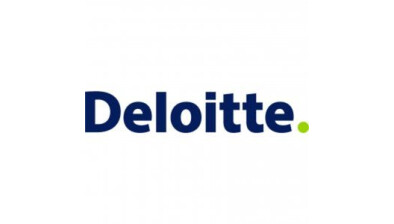UK audit shake-up plans face setback as small firms consider rejecting proposal to share FTSE 100 work

The UK Government’s plans to shake up the accountancy sector are facing a significant setback, as smaller firms consider snubbing reforms that would see them share FTSE 100 work with the Big Four companies.
UK ministers have proposed “managed shared audits” of FTSE 350 businesses, that would see a Big Four firm work alongside a smaller rival to check the accuracy of a company’s accounts.
However, according to insiders, BDO and Grant Thornton, the largest accounting firms in the UK after Deloitte, EY, KPMG and PwC, are considering not pitching for work on shared audits of FTSE 100 companies.
This could leave some FTSE 100 firms struggling to secure a smaller challenger accounting firm to work alongside one of the Big Four on their audits.
Some smaller challenger firms beyond BDO and Grant Thornton are expected to pitch for work on audits of FTSE 100 companies, however, accountants said they may find it difficult, party due to a lack of capacity and also because of the complexity of the blue-chip businesses.
One senior auditor at a large challenger to the Big Four, told the Financial Times that the UK Government’s plan for shared audits would force FTSE 100 companies to turn to “smaller firms that should not be anywhere near this”.
The plan is detailed in a white paper by the business department in March that proposed huge changes to the accounting industry and corporate governance after a series of scandals at the likes of BHS and Carillion.
The Big Four currently audit the entire FTSE 100 and more than 90% of the FTSE 250.
The plan for shared audits is intended to help smaller accounting firms gain the skills and experience needed to assess the financial statements of large companies and increase competition in the sector.
Yet, BDO and Grant Thornton are instead considering focusing on increasing the number of FTSE 250 companies they audit on a solo basis.
Under the government’s plan, a FTSE 350 company would have to hire a smaller accounting firm to carry out 10 to 30 per cent of its audit alongside one of the Big Four, which would have overall responsibility.
However, a company that hires an accounting firm from outside the Big Four for its audit could be exempted from the joint working arrangement and thereby operate on a solo basis.
Fiona Baldwin, UK head of audit at Grant Thornton, said: “The principle of shared audits is very attractive to challengers as long as the share of the audit is meaningful and brings incremental experience to teams.
“If the challenger firm is just going to get what’s left at the bottom of the barrel, that’s not interesting and doesn’t help.”
The government has not ruled out imposing a cap on the Big Four’s share of the FTSE 350 audit market if competition in the industry does not improve.
Scott Knight, UK head of audit at BDO, said a market share cap for individual accounting firms would be more effective than shared audits. He added: “BDO will work with whatever market intervention [the business department] land upon and try to make it work. We think the exemption from managed shared audits if you appoint a challenger firm will have a significant impact, particularly among the FTSE 250.”
Several accountants told the FT that there was concern that without BDO and Grant Thornton doing shared audits of FTSE 100 companies, other challengers could struggle to expand quickly enough in the medium term to meet demand.
Government modelling has predicted that within ten years, challengers could win up to 12% of the more than £1bn in annual audit fees from the FTSE 350 market, requiring a significant investment in personnel and expertise.
Accountants also said challengers may be unwilling to audit extremely large or complex companies such as big banks, insurers and miners.
Some challengers have also voiced concerns that companies using shared audits will ask them to check the accounts of unimportant subsidiaries that will not help them to build the skills they need to compete with the Big Four.
The UK Government Department for Business said that the government, through its white paper, intended to introduce managed shared audits so that smaller accounting firms had the opportunity to increase their market share.
It said: “We remain confident that managed shared audit will be effective to increase competition in the long term.”








